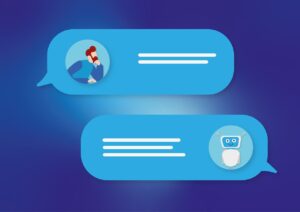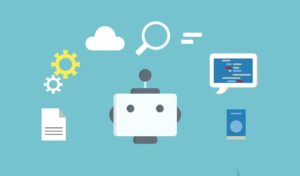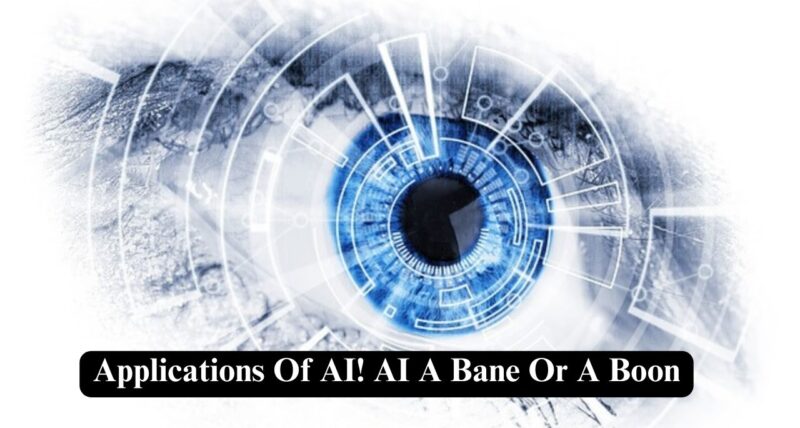Artificial intelligence (AI), providing innovation and convenience, has become a major aspect of everyday life. The applications of AI have the power to transform businesses, advance medical research, automate processes, and boost productivity and safety. However, because of ethical considerations and a fear of the unknown, it is frequently seen as a danger. In addition, it may result in job losses and privacy violations. Existential risks like AI taking the place of human work contribute to the perception of AI as a near-possible uprising modern-day threat. This article evaluates the possible advantages and disadvantages of artificial intelligence, assessing whether it is a boon or a bane.
The Positive Applications Of AI

The applications of AI have the potential to significantly transform many facets of life, including healthcare, education, transportation, and communication. The system streamlines operations, expedites recruitment, and promptly detects risks, offering valuable insights from vast datasets across various fields. Artificial intelligence is helping scientists create new diagnostic tools and streamline medical procedures. AI provides personalized learning experiences, enabling teachers to concentrate on activities that bring value. AI systems are also utilized in transportation, where they optimize scheduling and efficiency by coordinating countless flights and train rides. By examining traffic patterns and modifying traffic lights and signals, artificial intelligence may also control real-time road traffic. Also, AI optimization techniques are used by navigation applications such as Google Maps to determine the fastest route inside their systems.
Marketing professionals optimize ad targeting and placement with the use of AI-generated content and programmatic media buying. It is used in e-commerce to evaluate customer data, forecast consumer behavior, and provide tailored product suggestions. The applications of AI have also been employed in missile navigation systems to find hidden submarines and optimize military operations. Additionally, it may forecast terrorist activity, allowing intelligence services to take preventative action. AI is getting molded in several ways to solve global issues—environmental degradation and climate change. It supports sustainability in sectors such as supply chain sustainability, precision agriculture, and renewable energy grids.
The Negative Applications Of AI

Ethical issues about algorithmic bias, data privacy, and possible abuse are what drive AI’s complexity. There is an emergence of autonomous weaponry, facial recognition technologies, and surveillance systems. AI also backs up finance. Fintech companies and conventional banks are enthusiastic about the promise of algorithms to produce ideal loan choices. However, there are some risks with AI analysis, such as its tendency to create blind spots and self-reinforcing cycles. The applications of AI can be utilized as a defense tool, but its misuse can lead to disastrous outcomes. The military can utilize AI to fabricate war scenarios without taking ethical considerations into account. Through DNA sequencing, AI can potentially help manufacture bioweapons.
AI models raise numerous issues, such as employment automation, social manipulation, security, and data privacy. AI algorithms propagate misinformation, and social monitoring concerns may all be. Generative AI is enabling the creation of false information and fake news, potentially impacting election results and the democratic process. Concerns also include bias in AI and socioeconomic inequalities. To guarantee non-jeopardization of defensive engineering activities, companies must identify the inherent biases in AI systems. The emergence of generative AI techniques raises concerns about creativity and academic integrity. AI’s ability to erode morality is another issue. Fears of a worldwide arms race have arisen due to the fast development of autonomous weapons. Financial crises and an over-reliance on the applications of AI may cause human influence to decline.
Modern skills and well-designed rules are necessary for guaranteeing the moral and responsible use of artificial intelligence. To meet the difficulties of AI, one must acquire modern skills and stay updated. Critical thinking and the ability to adapt to new situations are crucial for fully realizing its potential. It’s critical to remember that the effects of AI differ according to the methods used, implemented, and controlled. Effective governance frameworks, ethical concerns, and responsible AI practices are essential for optimizing AI’s advantages while reducing any hazards. Overall, the applications of AI will determine whether it is a boon or a bane.



